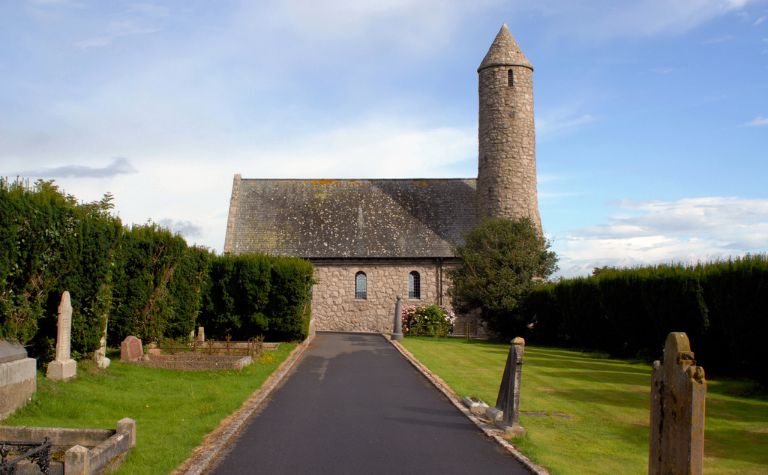Many people have heard of Episcopalianism and United Pentecostalism, also called Oneness Pentecostalism and Apostolic. Some even know that each tradition has strong roots in America. Yet many people wonder what the similarities and differences are between the traditions.
Episcopalianism is part of the worldwide Anglican Communion, i.e., the Church of England. Like other Anglican traditions, it’s half Catholic and half Protestant. The United Pentecostal tradition, unlike orthodox Pentecostalism, is known for rejecting the Trinity and the physical appearance of its members.
What do the terms “Episcopal” and “United” or “Oneness Pentecostalism” mean? Why do many Christians consider Oneness Pentecostalism unorthodox? How do these traditions’ beliefs about the Bible, God, Jesus Christ, and the Holy Spirit compare? Keep reading to learn the answers to these questions and others.
Also, see Episcopalian vs. Assemblies of God: What’s the Difference? to learn more.

Episcopal vs. Oneness (Apostolic) Pentecostalism: Comparison
Are United Pentecostals Christians? Most Christians, including orthodox Pentecostals, don’t consider United Pentecostals to be Christians because of the tradition’s denial of the Trinity and insistence that full-immersion water baptism and speaking in tongues are necessary for salvation.
Aren’t United Pentecostals “Pentecostals”? United Pentecostals are “Pentecostal” in the sense that they believe that speaking in tongues is the initial evidence of baptism in the Holy Spirit.
However, the tradition’s denial of the Trinity is contrary to the teachings of Scripture according to orthodox Christianity.
Even for orthodox Pentecostals, unity in speaking in tongues isn’t enough to overcome disunity concerning the nature of God.
| Episcopalian | Oneness Pentecostalism | |
|---|---|---|
| Name | From the Greek word for “overseer” and the Latin word for “bishop,” the term refers to a form of church government that locates ecclesiastical authority in the office of bishop as opposed to the papacy or congregational membership. The term also describes the largest tradition in the Anglican communion in America. | “Oneness” refers to the doctrine that the Father, Son, and Holy Spirit are different modes of the same person. The doctrine is sometimes referred to as “modalism” (more below). Orthodox Christianity believes that they are three separate persons. |
| Origin | The Anglican tradition dates to the time of King Henry VIII (1491-1547) and his protests against the Catholic church. Anglicanism arrived in America as soon as settlers arrived from England. The “Episcopalian” church dates to the time of the Revolutionary War (1775-1783). | Historians date the origin of Oneness Pentecostalism to 1913 in Los Angeles, California, when a faction arose that challenged the orthodox theology of the burgeoning Pentecostal movement. |
| Branch of Christianity | Because its part of the Anglican Communion, many people consider Episcopalianism halfway between Protestantism and Catholicism. Many theologians and historians posit that a church can’t be “halfway Catholic,” so it’s best to consider the tradition Protestant with aspects of Catholicism woven into certain churches. | Oneness Pentecostals consider themselves Protestants. Most Protestants don’t consider Oneness Pentecostals Christian because of their rejection of the Trinity and their beliefs about salvation. |
| Early contributors | King Edward VI (1537-1553), Queen Elizabeth I (1533-1603), theologian Richard Hooker (1554-1600) | Though modalists existed in the early church (and were rebuked), the modern expression arose in the preaching of Canadian Pentecostal Robert T. McAlister (1880-1953) in 1913. Frank Ewart (1876-1947) was also an early influencer. |
| Episcopalian | Oneness Pentecostalism | |
|---|---|---|
| Organization | The word “episcopal” comes from the Greek word for “overseer” and the Latin word for “bishop.” It refers to a form of church government that locates ecclesiastical authority in the office of bishop as opposed to the papacy, like in Catholicism, or the congregation, like in some Protestant traditions. | Like multiple denominations are called Pentecostal, multiple organizations are called Oneness Pentecostals. The largest Oneness Pentecostal organization is the United Pentecostal Church International. |
| Authority | Historically, Episcopalianism, like the Anglican communion, values the Bible. The tradition affirms the Apostles’ Creed and the Nicene Creed. The Book of Common Prayer is also a pivotal document to the heart and identity of the tradition. | Oneness Pentecostals believe the Bible, especially the King James Version (KJV), is authoritative for establishing doctrine and practice. |
| Divisions | The denomination called the “Episcopal Church” is the largest by a significant margin. Denominations and churches have split over theological, political, and social issues. Examples of contentious topics include women in ministry, allegations of devaluing Scripture, and issues related to same-sex marriage and gender identification. | Some Oneness Pentecostal groups adhere to a strict set of lifestyle standards related to their dress, appearance, and involvement in society. Traditionally, women have long hair and dresses and don’t wear makeup or jewelry. |
| Social worldview today | The “Episcopal Church,” the largest communion in America, is socially and theologically liberal. | Oneness Pentecostals are generally conservative. |
Do Oneness Pentecostals have fellowship with Christians? No. They believe orthodox Christians adhere to unbiblical doctrines and practices.
Do orthodox Pentecostals have fellowship with other Christians? Yes. Despite their differences, orthodox Pentecostals have unifying relationships with Christians in all historic denominations like Methodists, Baptists, Lutherans, Presbyterians, Anglicans, Episcopalians, and evangelical non-denominational churches. All parties recognize that what unites them doctrinally is greater than what divides them.
Also, see Episcopalian vs. Eastern Orthodox: What’s the Difference? to learn more.
Episcopalian Denominations and Churches
| Episcopal Denominations | Reported Membership |
|---|---|
| Episcopal Church | 2 million |
| Anglican Church in North America | 112,000 |
| Continuing Anglican Churches | 100,000 |
| Reformed Episcopal Church | 15,000 |
Oneness Pentecostalism Organizations
| Oneness Organizations | Reported Membership |
|---|---|
| United Pentecostal Church International | 5.2 million |
| Pentecostal Assemblies of the World | 2 million |
| Apostolic Assembly of the Faith in Christ Jesus | 2 million |
| Church of Our Lord Jesus Christ of the Apostolic Faith | 500,000 |

Episcopalian and Oneness Pentecostal Beliefs
What is Modalism? Modalism is the name of a heresy that the early church refuted and condemned as non-biblical.
Modalism, from the word “mode,” taught that the Father, Son, and Holy Spirit were different modes or forms of the same person like Oneness Pentecostalism teaches.
Orthodox Christians contend that Oneness theology is a revival of Modalism, which the Church has rejected for 2,000 years.
| Episcopalian | Oneness Pentecostalism | |
|---|---|---|
| View of the Bible | Historically, Episcopalianism has held to a high view of Scripture. Liberal and progressive congregations have decentralized Scripture. People can read deutero-canonical literature or the Apocrypha, but they can’t be used to establish doctrine. | Oneness Pentecostals believe God inspired the Bible. They prefer the King James translation (KJV). |
| View of God | Episcopalians believe in the Trinity; there is one God who exists in three persons. The Father, Son, and Holy Spirit are each fully divine. | God is one person who manifested as the Father, Son, and Holy Spirit at different times in history. |
| View of Christ | Historically, Episcopalianism has affirmed that Jesus is the second person of the Trinity. He is God in human flesh. He is 100% God and 100% man. Jesus was born of a virgin, lived a sinless life, died as an atonement for sin, was physically resurrected on the third day, and ascended into heaven. | Oneness Pentecostals believe in the deity of Christ. Atonement in Oneness theology starts with faith but includes full-immersion, water baptism, and speaking in tongues. |
| View of Salvation | Episcopalianism’s roots in Anglicanism are closer to Calvinism than Arminianism. However, Arminianism grew to characterize and influence the tradition more. Today, liberal and progressive congregations are ecumenical and inclusive of other religions. | Oneness views on salvation don’t conform to orthodox definitions of salvation as held in Arminian, Calvinist, Baptist, Lutheran, or orthodox Pentecostal churches. |
| View of the Holy Spirit | The Holy Spirit is the third person of the Trinity. He is fully divine. Episcopalians are historically cessationists, yet some small communions practice charismatic worship (e.g., International Communion of the Charismatic Episcopal Church). | Oneness theology affirms the deity of the Holy Spirit. Repentance from sin and living a holy life are critical to salvation, not simply maturation, in Oneness theology. |

| Episcopalian | Oneness Pentecostalism | |
|---|---|---|
| View of the Ordinances or Sacraments | All Episcopalian expressions recognize baptism and the Lord’s Supper. Those who have convictions that align with the high church recognize the other five that Catholicism does. The Anglican-Episcopalian tradition teaches that the sacraments are a means of grace, as in Catholicism. | Oneness Pentecostalism teaches that water baptism and the Lord’s Supper are the only two sacraments. |
| View of the Lord’s Supper | Christ is present in the elements, but there is a mystery to it. The tradition doesn’t fully embrace Catholicism’s theology of the Eucharist but affirms that consuming the elements is more than simply a memorial practice. | Oneness Pentecostals partake of the bread and cup as memorials of Christ. |
| View of the Baptism | Clergy baptize infants and adults; baptized individuals are “grafted into the church.” | Full-immersion water baptism is necessary for salvation. People must be baptized in Jesus’ name alone. If people were previously baptized in the name of the Father, Son, and Holy Spirit, they must be re-baptized. |
| View of the end times | Episcopalians believe in the Second Coming of Christ. The tradition’s eschatology is Amillennial, as opposed to Premillennial or Postmilennial. | Oneness theology is Premillennial. |
Orthodox Pentecostal Beliefs
- Scripture: Orthodox Pentecostals believe God inspired the biblical authors. Many conservatives use the term “inerrancy” to describe the nature of the text.
- God: Orthodox Pentecostals are devout Trinitarians. They believe there is one God and that the Father, Son (Jesus Christ), and Holy Spirit are each fully God.
- Atonement: Orthodox Pentecostals believe that Jesus is the second person of the Trinity. They hold to “penal-substitutionary atonement,” which means Jesus’ death paid the price for sin, and on the cross, he took the place of sinners.
- Arminian/Calvinist: Orthodox Pentecostals are mostly Arminian. The largest Pentecostal denominations, like the Assemblies of God, are Arminian. There are some Calvinist or Reformed Christians who speak in tongues and recognize the other miraculous gifts of the Holy Spirit.
- Baptism: Orthodox Pentecostals practice “Believer’s Baptism” as opposed to infant baptism. Baptism isn’t necessary for salvation.
- The Lord’s Supper/Communion: Orthodox Pentecostals believe the bread and the cup are memorials of Christ’s death. They don’t believe Christ is present in the elements in any way.
- Eschatology: Orthodox Pentecostalism is premillennial, meaning it interprets the 1,000-year period described in Revelation 20:1-6 literally. The millennium occurs after the rapture, the seven-year tribulation, and the Second Coming of Christ.
Also, see Episcopalian vs. Pentecostal: What’s the Difference? to learn more.
Related Questions
Episcopalian and Baptist are two of the largest branches of the Christian faith in America, though churches belonging to each tradition can also be found around the world. Many people know that...
Many people have heard of the Episcopalian and Methodist denominations but don't know the differences and similarities between their respective churches. People may also be aware that both traditions...
